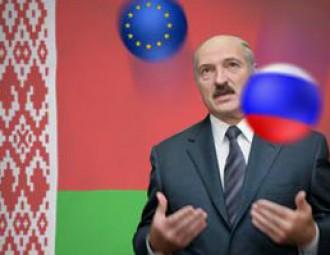Russian Ambassador suggests Minsk to improve relations with the EU
26.12.2012 | Politics

Though Kremlin has always supported Minsk when the relations between Belarus and the EU were tense, Russian Ambassador encouraged Minsk to smooth over tensions between the Unites States and the EU.
At a news conference that took place last Wednesday, Russian Ambassador Aleksandr Surikov noted that Belarus and Russia coordinate their foreign policies and thus advised Minsk to cool its tensions in relation to the EU, BelaPAN reports.
Nevertheless, the expert of the Belarusian Institute for Strategic Studies (BISS) Andrei Eliseeu believes that Russia benefits form the situation when tension between the EU and Belarus is higher that between Russia and the EU. However, “it is not good for Russia when relations are too bad as to rule out high-level contacts and involvement of Belarus in cooperation programs. Current tensions between Belarus and the EU and the United States do not benefit Russia; thus, Moscow may encourage Minsk to mend fences with the EU”, said Andrei Eliseeu.
Political analyst Jury Chavusau says that Brussels is on a lookout for a new strategy with regard to Belarus. “Brussels feels that its old strategy of isolation pursued for the last two years has been exhausted,” he told. “But it cannot give it up because of the lack of any alternative. The sanctions are a do-nothing tactics. Maybe… the ‘ball in the Belarusian court’ position is better because it can force Belarus to take some steps,” he says.
Still, he opposes Moscow’s meddling in Belarusian-EU relations, noting that more and more decisions on Belarus are made in the Kremlin.
Pauliuk Bykouski, a journalist with the private weekly “Belorusy i Rynok” (“Belarusans and Market”), says that Moscow is interested in tensions between Belarus and the West, but it would not like to have a reputation as a sponsor of dictatorial regime in Belarus. “Russian foreign office defends Belarus vehemently on the international arena, but Russian officials occasionally speak out for the abolition of death penalty in Belarus and call for improved ties with the West,” he says.
At the same time, Russia opposes the use of human rights and democracy theme to interfere in internal affairs, Bykouski adds. Noting that Uladzimir Makei, Belarusan foreign minister, and Alena Kupchyna, a deputy foreign minister, held a number of meetings with EU diplomats lately, he says that Minsk and Brussels seem to be clarifying their positions in an effort to find common ground for improving their relations. “Both sides do not want to lose face, both want better relations, but it is not easy to find opportunities for it,” Bykouski says.
The main difficulty is jailed political activists in Belarus. The EU insists on the release of what it calls “prisoners of conscience” before any negotiations, but Minsk denies political persecution, saying the activists in question were jailed for crimes.
Bykouski says that Moscow’s mediation between Belarus and the EU would not work. “The major players in building relations between Belarus and the EU are Lithuania and Poland. They take Russia’s involvement on the post-Soviet space with suspicion, they are wary of its influence. Many EU countries are wary of Russia’s initiatives in the area. These initiatives can hardly be successful,” he explains.
Eliseeu says that Moscow is interested in good relations between Belarus and the EU in a long-term perspective, citing Russian President Vladimir Putin’s idea of establishing a “harmonious economic community stretching from Lisbon to Vladivostok.”
Let us recall that in November 2010, in a letter to the German daily Sueddeutsche Zeitung Putin argued that more integration between Russia and the EU and even a "common continental market" would allow them to overcome the effects of the crisis and prevent a new one from emerging.
“From the viewpoint of plans for the big project from Lisbon to Vladivostok… Belarus needs good relations with the West,” Eliseeu told. “Otherwise it may remain a blank spot on the map of this gigantic integration entity.”
“This version of a supercontinent… would be very favorable for Belarus,” Chavusau agrees. “It would become a geopolitical entity to which Eurasian rather than European standards would apply. That would cool tensions over human rights issues.” He adds that Belarus has a better human rights record than Uzbekistan and other Central Asian nations that may be part of the alliance.
-
03.01
-
07.10
-
22.09
-
17.08
-
12.08
-
30.09








































